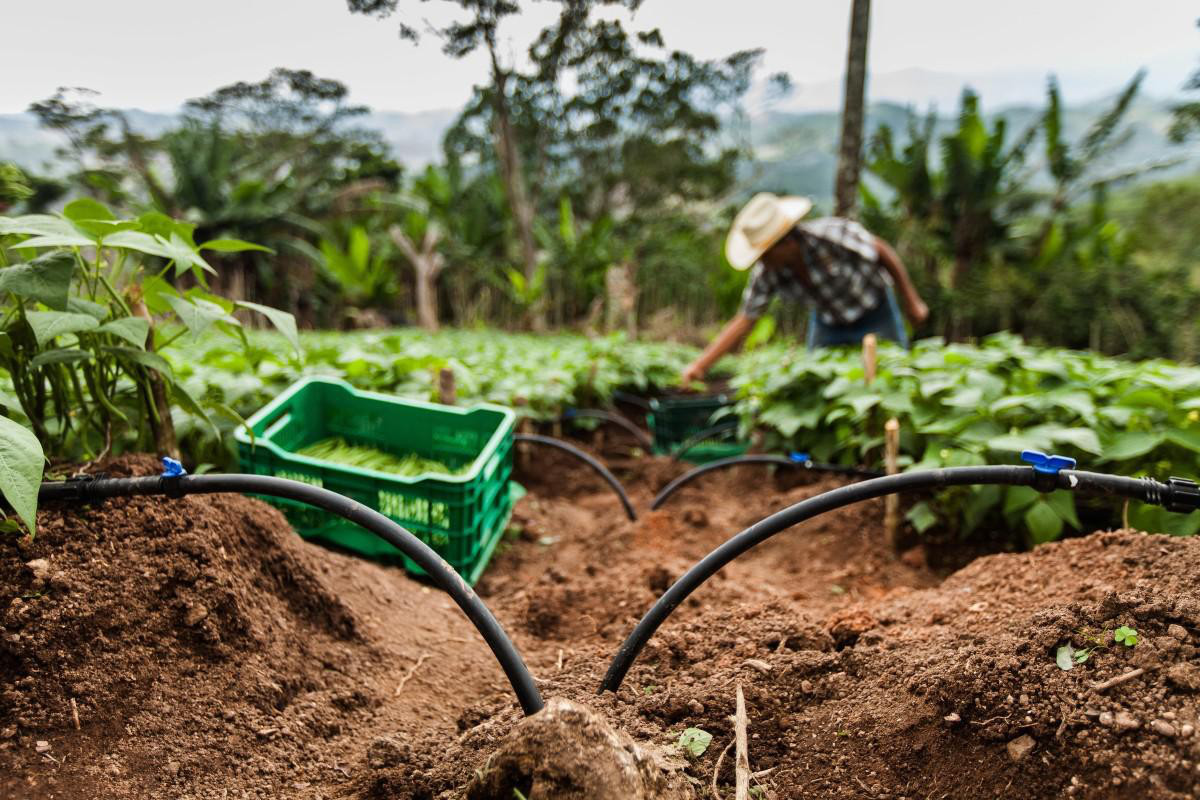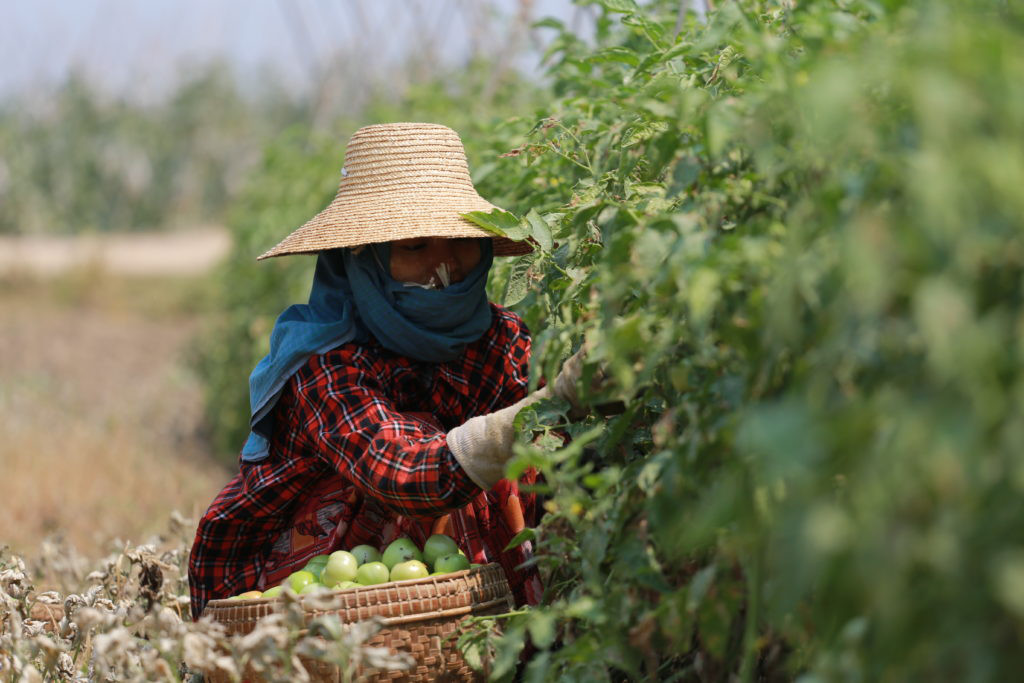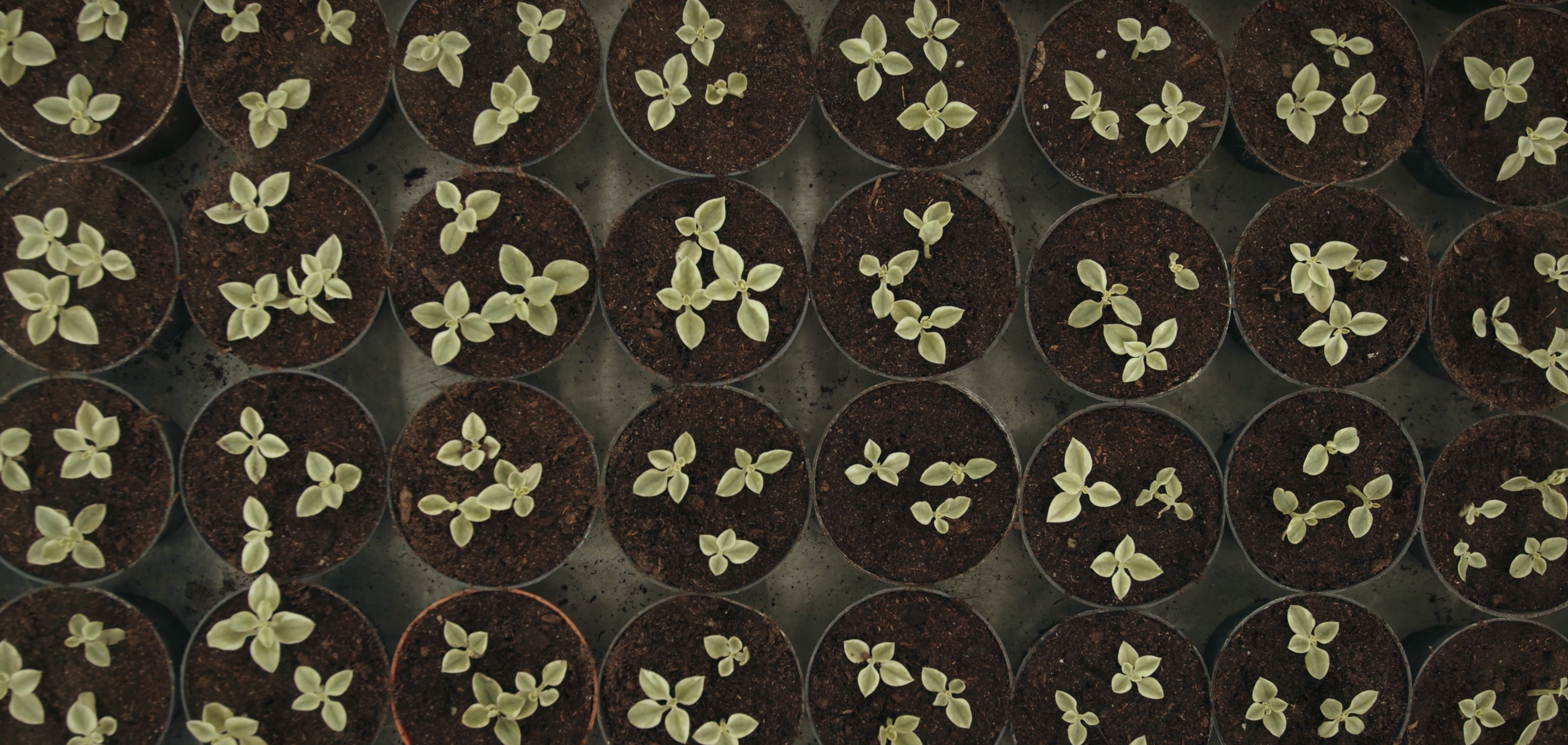
Supporting smallholder producers.
In the developing world.
Small holder farmers play a critical role in food security.
Smallholder family farmers play an important role in food security occupying approximately 53% of the total farmland and constituting 98% of all farms1.
In developing countries smallholder farmers are often trapped in a vicious cycle of low-intensity, subsistence-based farming, low yields with insufficient profits to make transformational investments2. Once seen as part of the poverty problem, family farmers, including smallholders, have grown to be seen as critical components to improve food security and to end global poverty, helping to change our how food is produced, and how land is conserved and regenerated.

There are an estimated 500 million smallholder farms worldwide which support the livelihoods of about 2 billion farmers. Most smallholders are in Sub-Sahara Africa and Asia, with Asia alone constituting an estimated 350 million farms. Many smallholders in developing countries remain stuck in poverty with a cycle of financial, political and environmental challenges.
From smallholders to shareholders.
We are committed to developing long term sustainable relationships with smallholder producers – thats why we make partnering farmers shareholders.
We help smallholder producers diverge away from annual and bi-annual mono crop systems, engaging them with new methods of ecological and regenerative production; that regenerate and support soil systems, reduce or eliminate synthetic inputs and costs, increase crop diversity and income and improve producer livelihoods and ecosystem health. We incentivise producers transition to agroecological methods through the creation of producer incorporated food enterprises, whereby the partnering producer becomes a shareholder of the end product. The startup and transition is micro-loaned partially, but largely invested through tangible inputs, (i.e seeds, seedlings, organic mulch etc). Smallholders gain market assurance from their shift to new or adapted production models through agroecological contracts that purchase companion crop bi-produce and provide long term dividends in enterprise profit.

We engage and facilitate smallholder producers shift towards agroecological methods.
Seed saving
To engage producers with seed saving and sharing programmes between transitional partners.
Zero agrochemicals
To eliminate the use of synthetic agro chemicals from production and non-ecological methods of land preparation.
Increase crop income
To diversify and increase crop income through interplanting and companion cropping.
Reduce input costs
To reduce input and labor costs no dig farming solutions.
